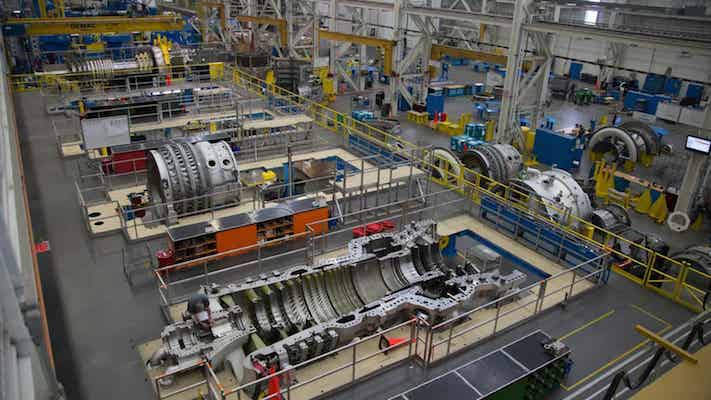Manufacturers share success stories for survival
The Manufacturing sector expanded by 3.4 percent in the first quarter, according to data by the NBS
Manufacturers have shared success stories bordering on survival strategies in the face of a tough operating environment.
At the BusinessDay Manufacturers Conference on Thursday in Lagos, successful manufacturers asked counterparts to look beyond problems and the government to create value for themselves and their customers.
“The banks are not ready to give you funds, even when you meet their requirements,” said Esther Williams, who works at Williams Dabo Group, a Nigerian business group committed to promoting investment in oil and gas and other sectors.
“So we had a business running at an efficient stage, and we were able to make so much money. We had to borrow from this business to finance those operations,” she said at the conference, themed, ‘Unlocking Nigeria’s Manufacturing Potential: Strategies for Sustainable Growth Amid Economic Turbulence.’
Williams said the company has been operating off-grid for stability, running a hybrid and a standalone system at the manufacturing plants.
“There will be 70 percent battery backup systems and 30 percent on the national grid. This is just to ensure continuous production as we are designed in a way that has to run 24 hours a day, seven days a week,” she said.
Williams Dabo Group is one of such companies weathering the storms by investing in sustainability with little involvement of the government. They spread their operations to other states like Kano and Ibadan apart from their base in the country’s commercial capital.
The performance of Nigeria’s manufacturing sector has been described as ‘lacklustre’ by the players as they operate significantly below capacity. The capacity utilisation in the sector stood at 57 percent in 2024, with South Africa hitting 78 percent. The finance cost of members of the Manufacturers Association of Nigeria (MAN) totalled N1.3 trillion last year, constraining investment and expansion plans.
However, these roadblocks have not stopped businesses from making money as local manufacturers innovate to stay afloat.
Read also: Manufacturers push to gazette local patronage to drive competitiveness, reduce imports
“Companies are doing many things to survive. Beyond waiting on the government, they have tried to do a lot of things for themselves. They provide power for themselves, and even security,” said Sunnie Omeiza-Michael, director, research and advocacy, Lagos Chamber of Commerce and Industry.
British American Tobacco (BAT), one of the world’s largest manufacturers of tobacco, has been in existence in Nigeria for long, and in that time has adapted to its unpredictable economic conditions, spreading operations to other factories outside Lagos to cushion the foreign exchange (FX) crunch.
“Somehow, our company has been able to survive without economic challenges, generating $110 million in forex. We don’t depend on the Nigerian government for forex. We create our own,” said Odiri Erewa-Meggison, external affairs director, BAT, West and Central Africa.
Recently, BusinessDay reported that the FX crunch in Nigeria boosted manufacturers’ local input sourcing in 2024 as firms sought to minimise costs and optimise value.
Read also: Manufacturers’ energy cost jumps 44x amid factory shutdowns
Manufacturers are only thinking long-term. Global economic shifts mean market unpredictability and that present strategies may not last long. They are beginning to adopt automation and sustainable energy to stay afloat and even save some cash, especially amid Nigeria’s alarming electricity scarcity.
“For this power problem, especially, they need to look long-term. The cost may be high today for them to move over to renewables, but it’s something they should think about.
“If they can start it now, in 10 years from now, when you prorate the cost, you’ll find that it’s actually cheaper,” said Omeiza-Michael.
“It’s actually not easy,” Williams said. “Bringing out your raw finance, your equity, you have to make a plan. If it means three years, four years, that will happen with the plants you are setting up in Kandu for the ginger, manufacturing, and spices as well.”
George Onafowokan, managing director of Coleman Technical Industries Limited, said it is pertinent for businesses to innovate.
“Build your business to a level where they’re forced to see you and when they’re forced to see you, they’re forced to hear you,” he said.
Adetunji Aderinto, founder of Zetamind Consulting Limited and a fellow panellist, said foreign investors often recognise prospects in the Nigerian market that many local manufacturers overlook. He advised manufacturers to reduce costs through technology adoption and data utilisation.
“Some manufacturers shut down operations because they don’t understand what their customers need. They need to increase market share and strengthen their supply chains,” Aderinto said.
The panellists, preceded by Segun Ajayi, director general of MAN, collectively encouraged Nigerians to patronise locally-made products and enhance the country’s product competitiveness amidst rising imports.
But for Nigerian businesses to be competitive in global trade, the quality and standard of production is called into question.
“It is important for us to not just produce but produce quality,” Omeiza-Michael said. “What they can get in the UK, what they can get in the US, what they can get in other African countries like Rwanda, South Africa, Egypt, they should be able to get it here.”





